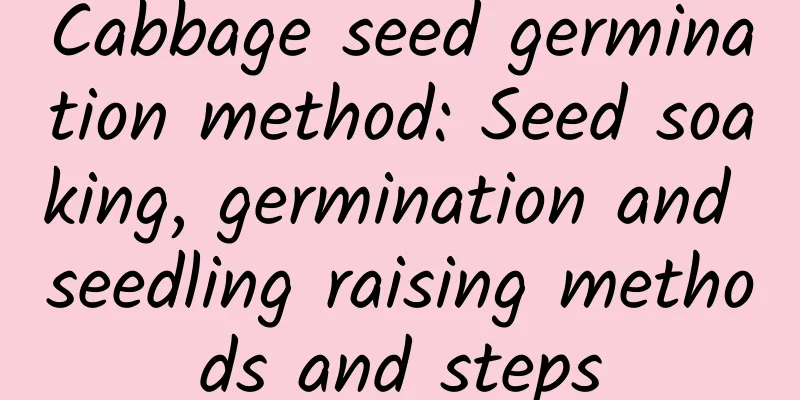Tips for preventing and controlling root rot of keel flower

1. Causes of root rot1. There is too much water in the flower pot. This is the most common reason. 2. Some people like to put flowers indoors for viewing. It is best to place them in an area where they can get more sunlight. If it is summer, the light is very strong. Although it is not afraid of the sun, it still needs proper shade from the sun to grow healthily. If these are not noticed, the roots may rot. 3. In order to make the dragon bone flower grow more vigorous and beautiful, some flower lovers will fertilize it, but the amount is sometimes difficult to control. If the amount is too strong, its roots will rot. It is best to add fertilizer every 15 to 20 days during its development period. The temperature is too low in winter and this flower will stop growing. Do not add fertilizer to it at this time. If you add fertilizer on a very cold day, it will cause root rot. In winter, the root growth process slows down and the nutrient absorption rate also decreases. Flower fertilizers cannot be absorbed, which will hinder the root system. To prevent root rot in winter, place the flowers in the sun and rotate the position of the flowerpot every once in a while. II. Prevention and Control Measures1. If the roots are damaged due to too much water, pour out the excess water. If the soil is still usable, you can continue to use it. If the soil is not breathable, it is recommended to replace it with new soil. Then place the pots in a ventilated area to dry. 2. Place it in a location with suitable light as described above and apply fertilizer according to the specific situation. 3. If the roots of the flowers are damaged, cut off the rotten parts immediately, then disinfect the remaining parts with ashes from burning grass, place them in a cool area for 2-3 days, and then insert them into new fine sand without putting soil in them. The fine sand should be more than 5 cm thick, and then water it. If the moisture in the fine sand does not decrease, do not add water. You can spray some water on the flower plants, but do not water it into the sand. If your flower is very large, you can cut it into several plants, because if it is too large it will easily fall over and will be less likely to survive. Place it quietly in a windy and sunny area. The temperature should be 25-30 degrees Celsius and the humidity should be between 30% and 50%. Do not add fertilizer during this period. It will take root after a month. |
<<: How to deal with gardenia root rot
>>: What to do if the Milan flowers have root rot
Recommend
When is the best time to transplant Daphne koreana? When is the best month to transplant Daphne koreana?
Transplanting of Daphne koreana should be done in...
Is it profitable to grow grapefruit? How much profit can one acre of grapefruit make?
Is growing grapefruit profitable? Pomelo is a com...
How often should I water the Chinese toon tree?
How often should I water the Chinese toon tree? S...
Cultivation methods and precautions of wintersweet
1. Breeding methods 1. Soil: It prefers loose, br...
Clivia rose...throw it into water and it grows wildly!
Clivia 1. The Clivia is not growing well and its ...
What kind of flowerpot is good for money tree
What kind of flowerpot is suitable for money tree...
How to grow yucca
1. Temperature It has very strong cold resistance...
Cultivation methods and precautions of Yuanbao tree
1. Breeding methods 1. Soil: Prefers soil with go...
Where to grow fennel
Where fennel is grown Fennel generally grows in a...
Ranunculus prefers shade or sun
Ranunculus prefers shade or sun Anemone is easy t...
The Flower Language of Snapdragon
The flower language of snapdragon: pure heart Fis...
When does the fritillaria bloom?
Flowering period of Fritillaria The fritillaria b...
How to grow Mimosa pudica
1. Soil suitability You can directly use garden s...
Is the scent of jasmine harmful to humans?
1. Is it harmful? Its fragrance has no harm to th...
Where to grow raspberries
Raspberry growing area Generally, raspberries gro...









